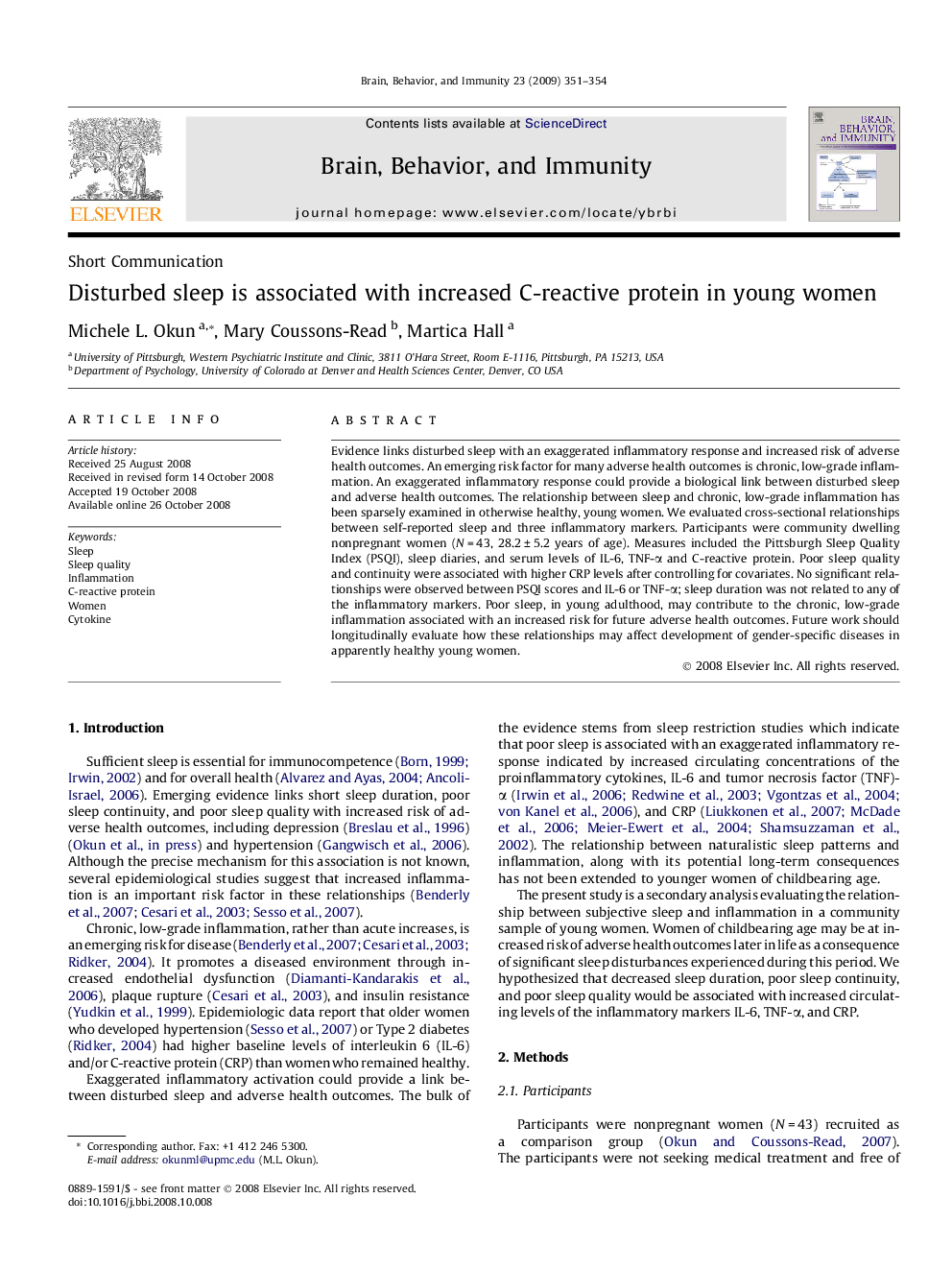| کد مقاله | کد نشریه | سال انتشار | مقاله انگلیسی | نسخه تمام متن |
|---|---|---|---|---|
| 923548 | 921092 | 2009 | 4 صفحه PDF | دانلود رایگان |

Evidence links disturbed sleep with an exaggerated inflammatory response and increased risk of adverse health outcomes. An emerging risk factor for many adverse health outcomes is chronic, low-grade inflammation. An exaggerated inflammatory response could provide a biological link between disturbed sleep and adverse health outcomes. The relationship between sleep and chronic, low-grade inflammation has been sparsely examined in otherwise healthy, young women. We evaluated cross-sectional relationships between self-reported sleep and three inflammatory markers. Participants were community dwelling nonpregnant women (N = 43, 28.2 ± 5.2 years of age). Measures included the Pittsburgh Sleep Quality Index (PSQI), sleep diaries, and serum levels of IL-6, TNF-α and C-reactive protein. Poor sleep quality and continuity were associated with higher CRP levels after controlling for covariates. No significant relationships were observed between PSQI scores and IL-6 or TNF-α; sleep duration was not related to any of the inflammatory markers. Poor sleep, in young adulthood, may contribute to the chronic, low-grade inflammation associated with an increased risk for future adverse health outcomes. Future work should longitudinally evaluate how these relationships may affect development of gender-specific diseases in apparently healthy young women.
Journal: Brain, Behavior, and Immunity - Volume 23, Issue 3, March 2009, Pages 351–354